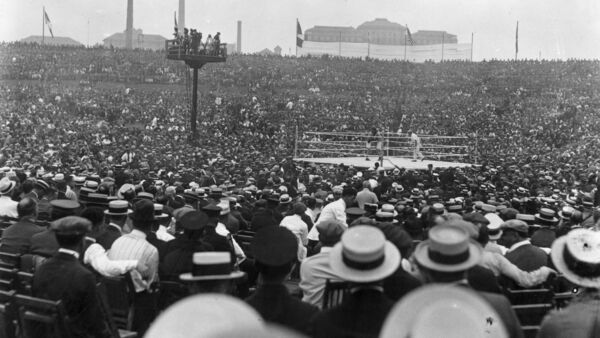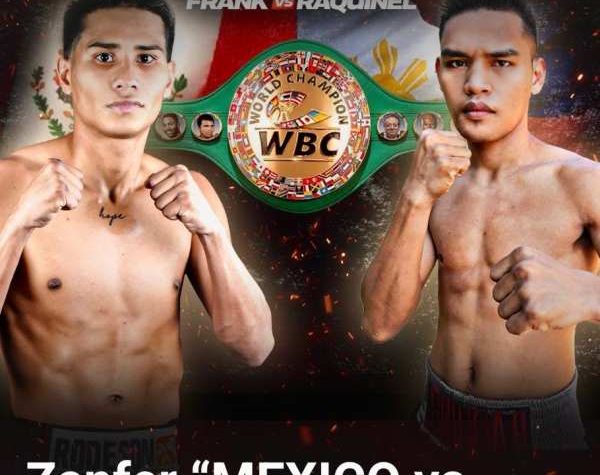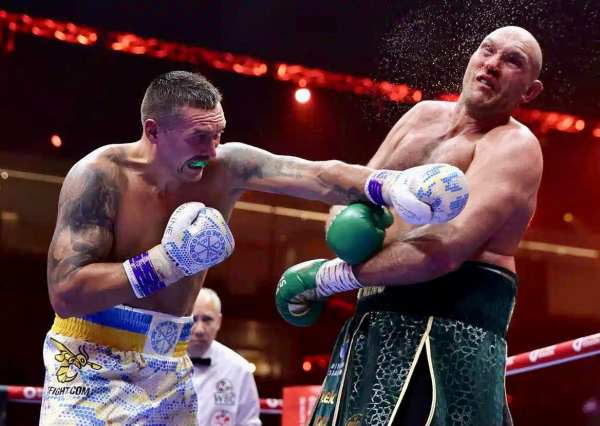
The World Boxing Association celebrates its 100th Anniversary
WBA Press
On July 2nd, 1921 the World Boxing Association (National Boxing Association back then), the most important organization among those governing the sport, was born.
That day the Heavyweight world champion, American Jack Dempsey, defended his crown against Frenchman and Light Heavyweight champion Georges Carpentier, in the first fight in history sanctioned by the then newly created National Boxing Association (NBA), which 41 years later would change its name to World Boxing Association.
That fight was a unique event that marked several historic milestones for boxing. Among other things, it was the first time that a sports event of this kind had a massive presence of women among the almost 90,000 fans who filled the seats of Boyle’s Thirty Acres in Jersey City, New Jersey, the venue chosen by promoter George “Tex” Rickard, a predecessor of Bob Arum or Don King, to name two of the most famous promoters in history. It was, likewise, the first fight to collect more than a million dollars, exactly $1,789,238 paid in tickets from $5 to $50 (it was later said that the organizer regretted not having sold the tickets at a higher price).
In addition, a boxing match had never been broadcast nationwide live on the radio before -it was heard in several states-, and it also marked the fact that it was the first performance of a French fighter in search of the world belt in the Heavyweight division.
That fight was a unique event that marked several historic milestones for boxing. Among other things, it was the first time that a sports event of this kind had a massive presence of women among the almost 90,000 fans who filled the seats of Boyle’s Thirty Acres in Jersey City, New Jersey, the venue chosen by promoter George “Tex” Rickard, a predecessor of Bob Arum or Don King, to name two of the most famous promoters in history. It was, likewise, the first fight to collect more than a million dollars, exactly $1,789,238 paid in tickets from $5 to $50. (It was later said that the organizer regretted not having sold the tickets at a higher price).
In addition, a boxing match had never before been broadcast live on radio nationwide -it was heard in several states- and it also marked the fact that it was the first performance of a French fighter in search of the world belt in the Heavyweight division.
But, back to the first paragraph, the most relevant thing from the point of view of history is undoubted that the Dempsey-Carpentier fight was the starting point for our organization, which began its successful journey by assuming the responsibility of supervising a world championship just a few months after its creation as (NBA), now, as we said, World Boxing Association (WBA), currently chaired by the Venezuelan Gilberto Jesus Mendoza.
Its genesis took place in Rhode Island, northeastern U.S., on the initiative of 13 commissions that responded to the increasingly intense boom reached by the popular sport of fisticuffs. It was, to place ourselves in the scene of the event and its protagonists on the ring, a fight animated – as we pointed out in previous lines – by the American William Harrison “Jack” Dempsey, Heavyweight champion of the world since 1919, and the French Georges Carpentier, a World War I hero of great charisma, who was nicknamed The Orchid Man and whose physical attractiveness was the main reason for the large turnout of ladies, in an avalanche never before seen in a sports show.
In addition, despite the fight that took place in the United States, the visitor had the greatest favoritism against Dempsey of rough manners, who to top it all did not even serve in the army of his country, which made him an anti-hero, the counterpart of the elegant and refined French fighter.
The champion received a purse of $300,000, an amazing amount at the time, and Carpentier got $100,000 less, with 25% each for the broadcasting rights. As an attraction for print and radio coverage, to be honest, there were very few exciting alternatives given the obvious superiority of the champion, who was making his third defense. But apart from that, it was an unforgettable event and still keeps its relevance due to the aforementioned historical circumstances.
ONE SIDED FIGHT
After a pair of prelims, in one of which Gene Tunney – who 5 years later would dethrone Dempsey – defeated the Soldier Jones in 7; up went the champion, aka Manassa ‘Mauler from Manassa, Colorado, where he was born on 6/24/1895), age 26, and the challenger, age 27.
Dempsey had made his professional debut in 1914 (he fought for 12 years) with a win in the first over Young Hancock. Standing 185 tall, with equal arm reach to his opponent, he came up against Carpentier at 188 pounds, 68 fights and 55 wins, 41 knockouts, 4 losses (1 by KO), and 9 draws. On the other hand, the Frenchman had been fighting in the professional ranks since 1908. He was 1.80 tall and weighed 172 pounds (78.01 kilos) and had 83 successes, 51 of them before the limit with ten knockdowns, 6 before the final bell.
It was the third defense for Dempsey, who had won the title with a TKO in 3 against Jess Willard on July 4, two years earlier, while the opponent held the light heavyweight crown won against Battling Levinsky on October 12, 1920, in Jersey City.
After the first round of study, came a second-round where Dempsey attacked the French, who contained him with a right hand that shook the champion, the only effective blow from the challenger. Jack Dempsey immediately recovered and seriously impacted the opponent. After a lame third round, the champion appealed to his artillery in the fourth, and with combinations of right and left he knocked down the Frenchman, who got up stunned and Dempsey finished him off with hammers from both hands. He knocked him down again, and referee Harry Ertle stopped the slaughter in one minute and 16 seconds.
Dempsey retired 5 years later after losing in the rematch with Tunney in the famous “long count” fight, losing the belt a few months earlier. He died in New York in 1983, at the age of 87.
On his side Carpentier, who did 12 more fights with a balance of 4 KO’s in his favor, three decisions – with a defeat by KO against Battling Levinsky in a dispute of the Light heavyweight belt he still owned – quit on 9/15/1926. He died in Paris in 1975 at the age of 81. According to the specialized encyclopedia The Boxing Record Book his record was 61 wins (50 by KO), 6 losses (1 by KO), and 8 draws. Other publications give him 54 (44 KO), 6 losses and 8 draws, figures that cast doubt on his record.
Carpentier, who made 12 more fights with a balance of 4 KO’s in his favor, three decisions, with a loss by KOT6 against Battling Siki in dispute of the semi-complete belt that he still held. He said goodbye to the ring on September 15, ’26 with a KO over an unknown, Rocco Stramaglia, in three chapters. He died in Paris 46 years later (1975), aged 81.





More News
Liu Gang, Brico Santig Join Forces
Highland’s Double Impact: August 18 at Lumpinee
Balajadia, Atencio in Action in Thailand